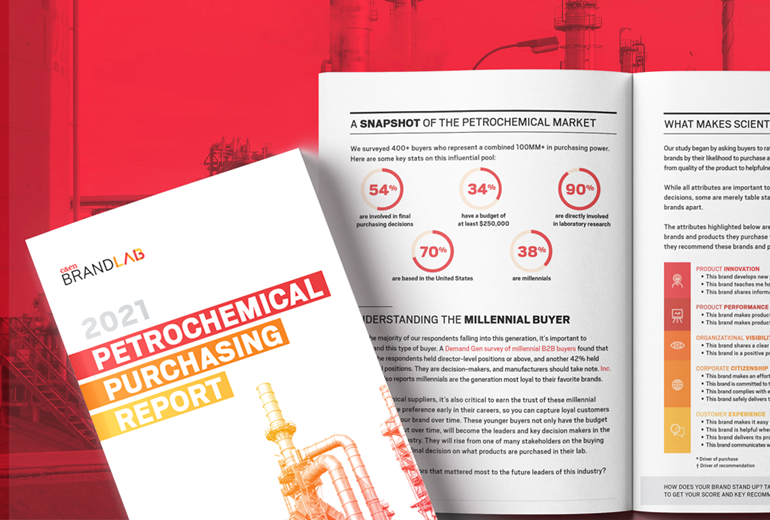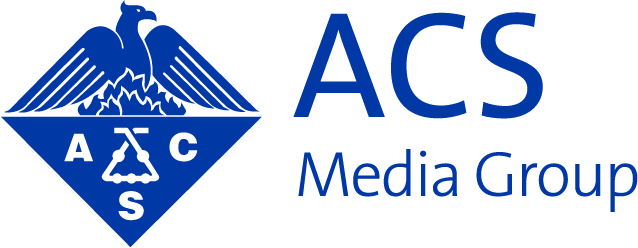Business growth is rarely, if ever, down to luck or good fortune. It is a result of providing goods and services that meet the needs of customers; that add value, make their lives easier, improve their bottom line, solve problems and help them move forward. Business is a constantly shifting landscape, and in science marketing, as in life, one of the only constants is change. Being aware of changes that can impact your organization is vital to continued growth as both a brand and business. That’s why marketing research should play a pivotal role in the direction of the organization and how decisions are made.
1. Knowledge Drives Momentum
It’s a total cliché, but an eternal truth is that knowledge is power and can drive momentum in a business. So, having a research strategy and allocating your budget according to your business needs is important. Research covers a wide range of areas and disciplines. However, a core facet is this: The more research knowledge you have at your fingertips, the greater depth of view you have across the areas of interest that were identified.

Conducting research can add real value to business strategy and empower data-supported decision making. For example, understanding the markets that an organization operates in – the potential impact of changes, the opportunities they present and potential threats to be aware of – can help marketers make informed decisions and gain or maintain operational advantages, among other things.
Investing in meaningful targeted data is the only way to truly have accurate, current, and contextual awareness. By researching your competition, for example, you can gain a wealth of usable data to build intelligence about their comparative strengths and weaknesses. Research is also a very useful tool for tracking trends. Trend tracking research can reveal what competitors are doing and which of their products and features customers are drawn to.
When it comes to allocating marketing spend, research data can give you valuable insights into determining the best marketing channels to activate, and which are most effective by customer type and location. Having a more data-supported and informed marketing strategy means that the potential ROI of spend can be more readily optimized. Knowing where customers get their information from, in which format, and when is the best time to target them, provides useful guidance that can underpin marketing strategy.
2. Research Can Support Customer-Centricity
Understanding your customers through comprehensive research can be a key differentiator that gives your business a distinct competitive advantage in the market. It can provide a platform to communicate with customers more effectively that the competition. By speaking in language that resonates with them, your organization can become a customer-centric business.
Customers’ pain points, opportunities and needs always evolve. Organizations need to be able to flex and optimize the way they communicate accordingly, based on researched customer trends. Polling customer opinions and choices and understanding their needs, desires, habits, motivations, and interests can generate valuable data that can be leveraged to more effectively target and appeal to them.
In a LinkedIn article, Laurie P. Smith, Director & Lead Facilitator in Customer-Centricity strategy and training at ADVANCE L&D, writes that “companies that are customer-centric are 60% more profitable.” The reasons for doing research in this area if pretty compelling.
Customer research can also be segmented to create different personas. Segmentation can be based on a number of factors including, product purchase, demographic, customer size and/or spend, or geographic location.
These personas will share many traits but also have unique ones, so can be targeted via distinct individualized campaigns.
What’s more, customer research can often uncover interesting and unusual trends that can be newsworthy in their own right, and drive conversations through news announcements, editorial opinion pieces, social media campaigns and more. It’s human nature to be curious about what other people think, right?
3. Identify Growth Opportunities
Research can be used to identify areas of opportunity and potential growth. Product development can draw on market research to validate the value of idea or concept.

Organizations can look to observe sales data over time and assess whether customer needs have shifted. This data can help identify areas of opportunity to introduce new products, or to add functionality to existing products to bring them more in line with customer demands. It can also determine whether a product is in danger of becoming obsolete and should be phased out.
Research may uncover new segments that were previously unknown and not catered to. In science marketing, for example, variations of the COVID-19 virus provided opportunities for drug companies to look at developing therapeutics that target specific properties of virus iterations to reduce potentially serious conditions developing in those who may be immuno-compromised or are in a distinct demographic (such as children under 5).
Research might also unlock strategic partnership opportunities where your organization’s products may meet a knowledge gap identified by another company, and vice versa. So, two organizations may come together to solve challenges that they otherwise would not have been able to individually.
4. Evaluate Your Marketing
A little self-reflection never did anybody any harm. Regularly evaluating the success of your marketing campaigns through research is a key element of the marketing mix. In terms of research, awareness measures (for example, brand, product and messaging) can all be factored into customer research outreach. Similar measures will also will be generated via media partners and platforms, who can provide detailed performance analysis. Engaging in research via these routes will allow you to track a number of elements, including hard data such as engagement levels, lead generation and conversions, as well as more emotionally driven factors such as brand awareness and thought leadership.
All of your marketing activities need to have a measurable ROI. The good news is, with most science marketing being done online theses day, the digital trail is traceable and dissectible. You will, of course have set goals for your campaign and so will be looking at website analytics, social media analytics, how inbound links performed, page ranks and so on. Where did we allocate budget? What did we get for that spend by way of leads, inquiries, views, likes and so forth? What was the spend per conversion? Which sources are driving the best returns?
Using research to track marketing returns and customer sentiment is key to providing an ongoing factual foundation to help support future marketing spend decisions, because the customer path to your organization can be signposted through data. And if sales are increasing through particular initiatives, then you can pivot more toward those and look at similar routes.
5. Testing, Testing 1,2, 3
Research also extends to product development. Usability testing around products and services can provide valuable feedback and insights around consumers use. For example, technology companies often release beta version of products and then sample that with a portion of customers to test functionality, iron out any wrinkles and drive further product development.
Testing concepts in this way can help companies detect if a product is actually worth the cost to fully develop. Is it what the market needs? Does it address problems for customers? Does it have performance advantages over competing solutions? Is there potential for longevity with customer through upgrade, patches, and consumables? Having this customer validation, the proof of concept, can save huge amounts of time, money and stress! It’s also a key element for start-up or early-stage companies hoping to woo potential investors.
In terms of launching a new product, customer research can be deployed to explore branding preferences and potential outreach success. For example, you can pre-test logo design, taglines, packaging, product messaging, promotional materials and so on with select audiences. These tests can gauge resonance and impact, and whether a product connects with an individual or group.
Once a product goes to market, the research has ongoing value to mitigate risk and help remove or minimize potential failures. Of course, products can have failures or faults. It’s the nature of business. However, the ability to triage problems by looking back at testing data and cross-referencing issues that were found at that stage can help to identify problems and remedy them in short order.
Marketing Research: How to Get Started
Research provides organizations with the potential to find out so much high value information related to their business operations, future direction, audience awareness, product potential, even drive the news agenda. Allocating more of your budget to marketing research can have a significant impact on your business.
Not sure where to start with research? C&EN’s BrandLab offers cost-effective surveys and research services. Our team of marketing strategist and PhD-level chemists/journalists partner with a third party to create surveys related to our clients’ scientific background. Then, BrandLab conducts survey research on a specific C&EN audience. A comprehensive summary of this research is shared to better help clients target their ideal audience. After this survey and research, we offer custom content, white papers, social campaigns, and other services based on their specific audience and goals. Visit cenbrandlab.org to learn more and view case studies of their work.



















